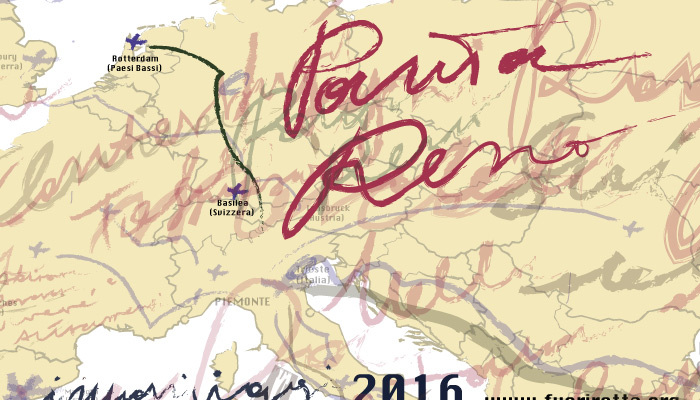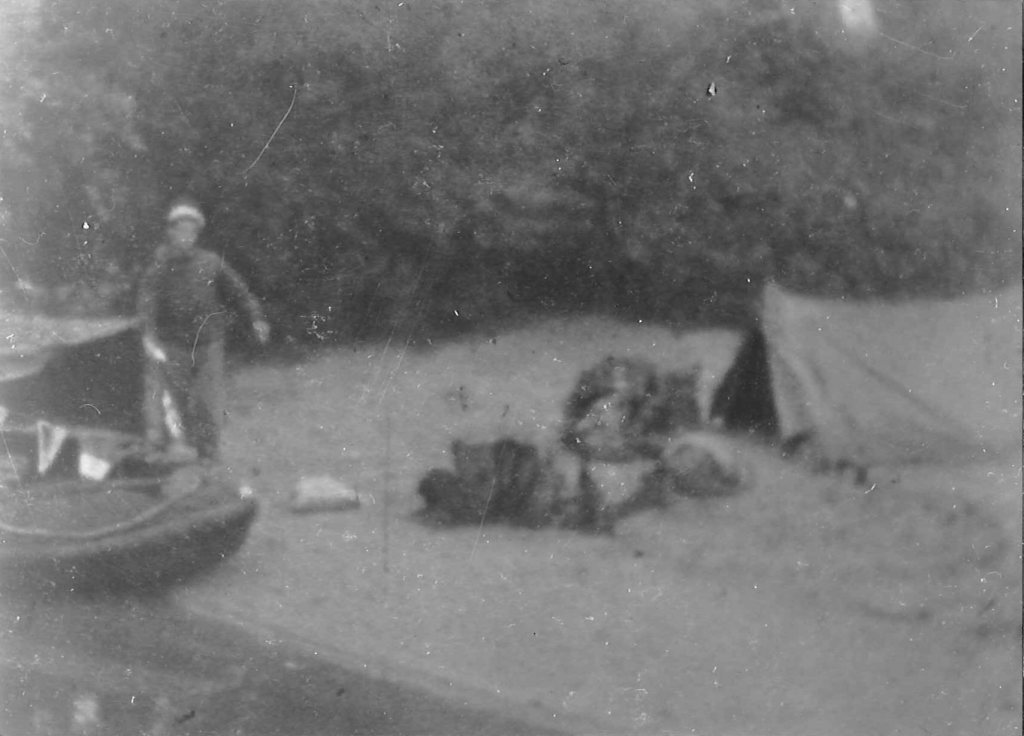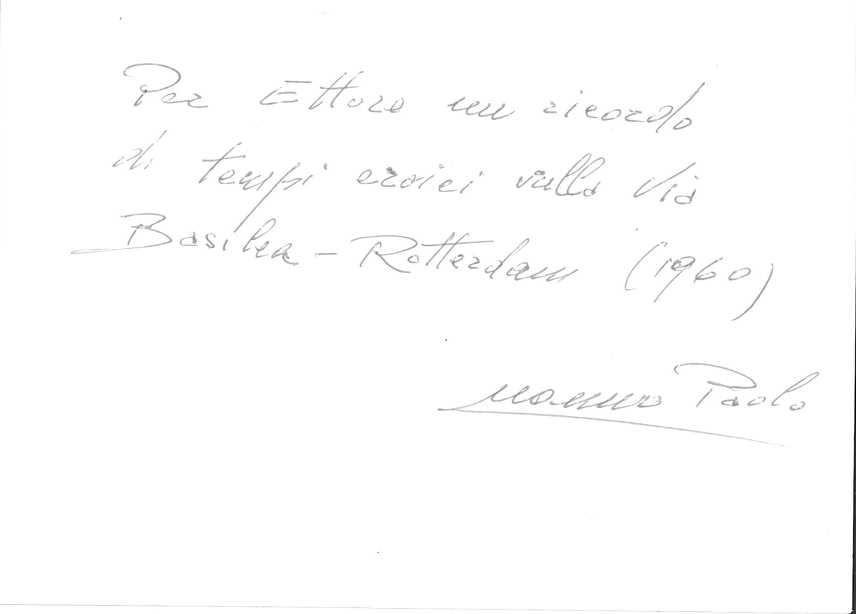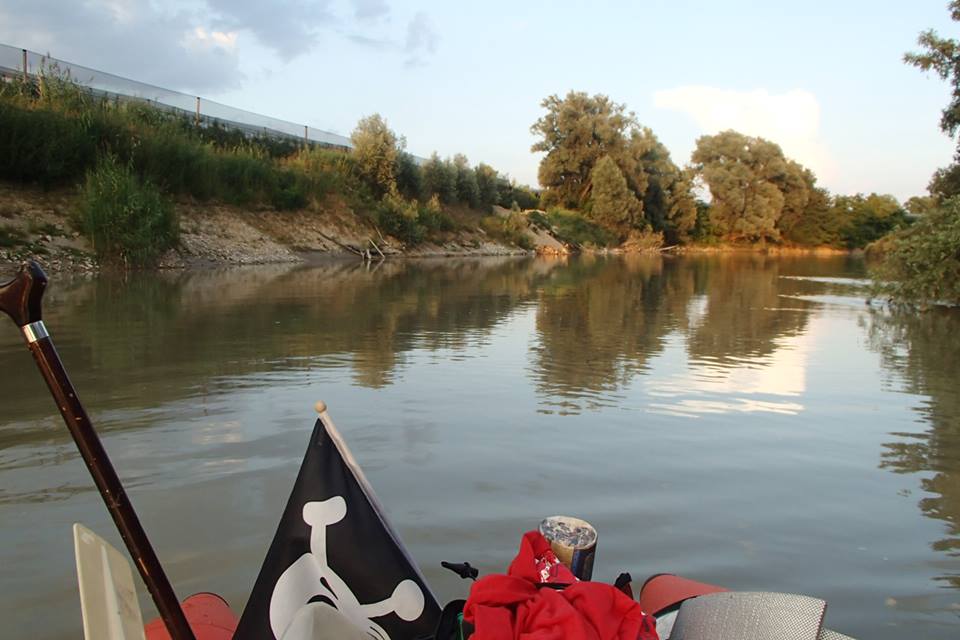Autori
Carlo Bettinelli
Alexis Ftakas
Ettore Camerlenghi
Luca Pozzolini
Descrizione
Il nonno paterno di Ettore, Paolo Camerlenghi, nel 1960, insieme a suo fratello e un amico, avendo recuperato un mezzo militare da sbarco e spinto dalla curiosità e dal bisogno di evadere dalla quotidianità della vita lavorativa, decide di discendere il Reno da Basilea fino alla foce, a Rotterdam. Quel viaggio è stato per Ettore un’ idea da inseguire, un collegamento diretto con il nonno sin da quando era piccolo.
Dopo averne parlato con Luca, nel 2013 i due decidono di prendere di nascosto il piccolo gommone a remi del padre di questi e di provare a discendere il Po. Nell’estate del 2015 ripetono l’esperimento, questa volta sul fiume Adige, ora proprietari di un gommone. Scoprono che ogni fiume ha una sua anima, delle caratteristiche uniche tra una trama di elementi che invece sono ricorrenti. Ettore e Luca quindi propongono a Carlo e ad Alexis di fare insieme il passo successivo. Insieme abbiamo quindi deciso di provare a ripercorrere le tappe del nonno di Ettore a distanza di 56 anni, a bordo di due gommoni.
Il Reno, in particolare dal 1800 in avanti, ha subito continue canalizzazioni e cambiamenti voluti dall’uomo, in particolare per ridurre la frequenza delle piene e poter far arrivare l’acqua ai complessi industriali nati sulle sue sponde. La mancata protezione degli stock ittici, delle foreste ripariali e della salute degli ecosistemi fluviali in generale portò, inevitabilmente, ad una crisi di produttività del pesce negli anni 70 del 900, dovuta all’eccessivo sfruttamento, inquinamento e alla costruzione di dighe. L’inquinamento stesso, soprattutto di metalli pesanti raggiunse un culmine proprio in quegli anni.
Per questi motivi il Reno rappresenta forse l’antitesi di quello che ci immaginiamo possa essere una rapporto sano uomo-ecosistema. L’idea di discenderlo lentamente ci appassiona, attenti ad ogni dettaglio ma pronti a stupirci anche delle piccole aree ruderali dove la biodiversità trova rifugio. Ci interessa scoprire, confrontando i ricordi del nonno di Ettore come il fiume sia cambiato negli ultimi 56 anni ma soprattutto come sia cambiato il rapporto uomo-fiume.
Vorremmo quindi realizzare un progetto video documentaristico/diaristico, sovrapponendo le riprese che Alexis farà lungo il viaggio, con quelle che il nonno di Ettore ha prodotto nel 1960; utilizzando anche interviste e fotografie. Sarà un racconto di un paesaggio mutevole nel suo attraversamento e mutato rispetto alle memorie del viaggio originale. Ci interessa conoscere chi vive lungo il fiume, le contraddizioni di chi il fiume lo abita e sappiamo già per esperienza che scegliere di discendere un fiume su un piccolo gommone, significa anche godere spesso della simpatia o della curiosità di chi si incontra.
In 1960 Ettore’s grandfather, Paolo Camerlenghi, along with his brother and a friend, having recovered a military landing craft and driven by curiosity and the need to escape from everyday working life, decided to descend the Rhine from Basel to its mouth in Rotterdam. That trip was for Ettore an idea to explore, a direct connection with his grandfather that had always been alive since he was a child.
In 2013 after talking about it with Luca, Ettore and him secretly took the small rowing boat of the latter’s father and tried to go down the Po river. In the summer of 2015 they repeated the experiment, this time on the Adige river, now owners of a little tender. They find that every river has its own soul, unique features intertwining with recurring elements. Ettore and Luca then proposed to Carlo and Alexis to join them for the next step. Together we have then decided to try to retrace the steps of Ettore’s grandfather after 56 years, aboard two boats.
The Rhine, in particular from 1800 onwards, has suffered continuous man-made ducts and changes, in particular to reduce the frequency of floods and to supply water to the industrial complexes born on its banks. Failure to protect fish stocks, riparian forests and health of river ecosystems led, inevitably, to a productivity crisis of the fish in the 1970s. The pollution as well, especially of heavy metals, reached a climax precisely in those years.
For these reasons, the Rhine is perhaps the antithesis of what we imagine to be a healthy man-ecosystem relationship. The idea of slowly flowing down its water thrills us, careful to every detail, but also ready to be amazed of small marginal areas where biodiversity finds shelter. We are interested in finding out, by comparing our experience to the memories of Ettore’s grandfather, how the river has changed over the last 56 years but especially how man-river relationship has changed.
Therefore we would like to make a documentary/diary video, also using interviews and photographs. overlapping the shots that Alexis will take along the way, with the ones that Ettore’s grandfather produced in 1960. It will be a tale of a changing landscape during the navigation, a landscape that has also changed compared to the original travel memoirs. We are curious to know those who live along the river, the contradictions of those who live daily on the river. We already know from experience that going down a river on a small raft means often to enjoy the sympathy or curiosity of those you meet.
Segui il progetto su Facebook | Follow the project on Facebook
Contatti del referente
Carlo Bettinelli: [email protected]




